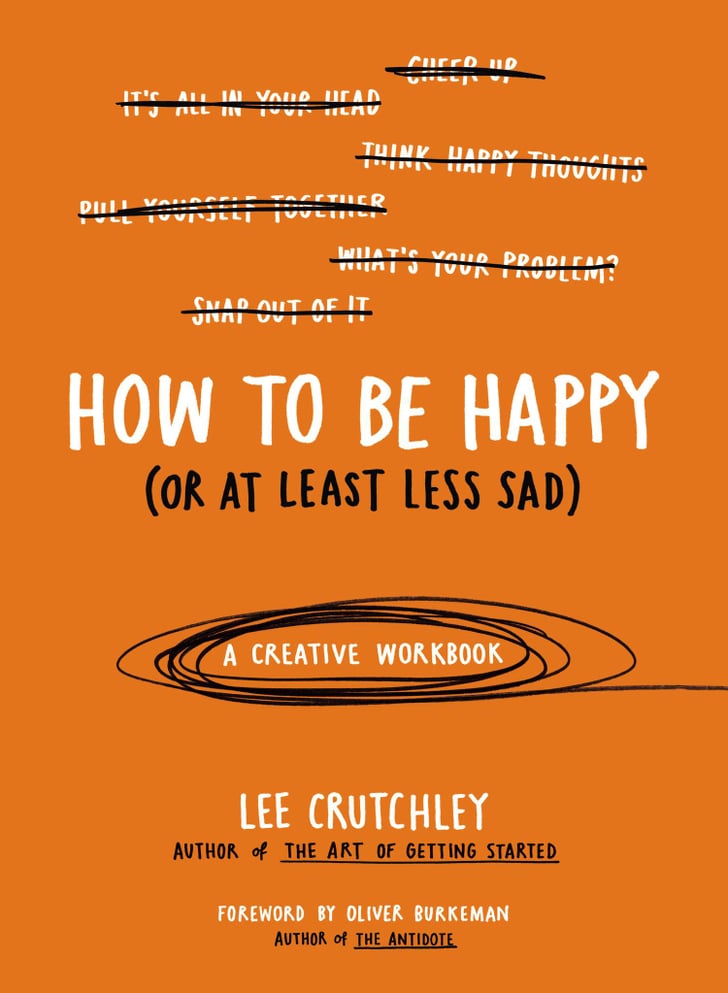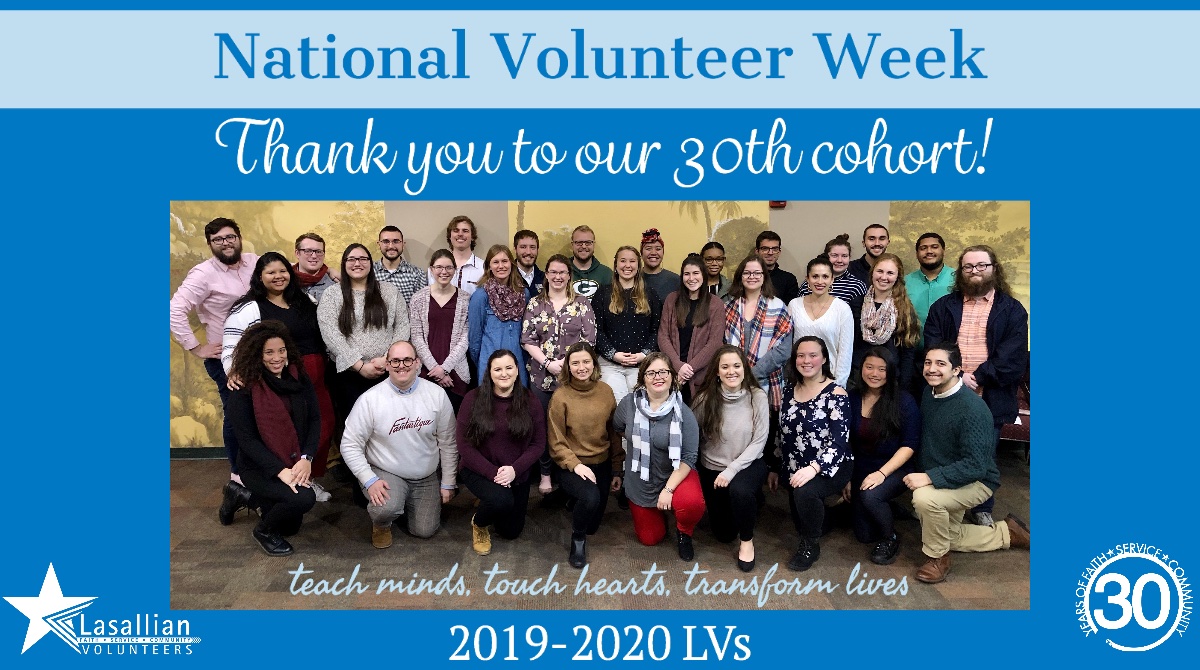- Volunteersteach To Be Happy Birthday
- Volunteersteach To Be Happy Meme
- Volunteersteach To Be Happy Birthday Wishes
What Your Volunteers Need to Be Happy No, its not as difficult as you think! The ASAE Foundation Study on what makes a Mutually Beneficial Volunteer System illuminated a few points.
- Learn more about volunteering and what it takes to be a good volunteer. Discover why many people who do volunteer work feel less stressed as a result of it.
- Plus the people in town are only too happy to receive you. In class I taught people aged 8 to 25 and all students were very well behaved and engaged. Outside read more of class I was never bored with Mehdi and Abdallah happy to show us the area and engage us in some interesting conversation for intellectual exchange.
Wherever Apollo really went, I suspect it was a place where nobody knew that he was a god or bothered him with their impossible questions. Everybody needs a season of rest.
Among Unitarian Universalists, summer is the season of rest, and by the time June rolls around a lot of us need it. Ministers, obviously. The human soul only holds so much wisdom and compassion, and by late May a lot of ministers start to look as if a bright light shining at precisely the right angle might pass straight through them.
But some years the rest of us aren’t doing much better. Someone had to chair all those committees, recruit all those volunteers, teach all those classes, make all that coffee, and do the million-and-one things that keep a church going. The new project that seemed so exciting in September always turns out to be more work than you pictured, the benefits are never as clear as you thought they would be by now, and besides, everyone is too tired to say, “Thank you.” The next time there’s some slack in my church’s budget, I’m going to suggest we hire somebody to wander around during the last two weeks of our church year, patting everyone on the back and saying, “Well done.” I’m sure it would be worth it.
For lay people, of course, the really insidious thing about church work is that we do it with our “free” time. Jobs, kids, and other worldly responsibilities don’t let up just because you’re organizing the canvass or chairing the building committee or leading your church’s board through an unexpected crisis. So if you need to steal hours from somewhere, the easiest activities to cut back are usually the self-nourishing ones: hobbies, exercise, and sleep.
But you can only do that for so long. So thank God my church, like a lot of UU churches, slows down in the summer and gives anyone who’s burnt out a chance to recover. If you can combine that break with a week or two off work, or lighten your responsibilities in some other way, you can do some serious recharging.
I’m not willing to admit exactly how many times I’ve been through the burnout-and-recovery process, but let’s just say I have the territory pretty well mapped by now. And I’ve noticed that I always pass through the same four stages, which I eventually named Paradox, Stasis, Silly Projects, and Reentry. By now I’ve talked through these stages with enough people that I suspect the pattern is fairly general. So to all this summer’s burnt-out UUs, I offer the following guide to the Stages of Rest.
Stage 1: Paradox
When you get tired, rest is supposed to make you feel better, right? But if you’re really burnt out, rest makes you feel worse, at least for a while. During the first stage of rest you get more tired, not less. It doesn’t seem fair.
I’ve known people who gave up at this point. They tried resting; it didn’t help. If they’re going to be miserable anyway, they figure they might as well get something done.
But my advice is to stick with it. Keep doing as little as you can get away with, and give the rest-cure a chance. It may feel like you’re getting worse, but here’s what I think is really happening: During that final push that burnt you out, you had to repress your awareness of how tired you were. “I’m OK,” you said. “I can do this.” During the Paradox stage, you gradually let go of that denial and admit that you feel like day-old roadkill.
Trust me: Yesterday you actually felt worse than that—you were just telling yourself that you didn’t.
Stage 2: Stasis
After you’ve let go of your denial, it’s possible to be genuinely happy in small doses—as long as nobody expects anything out of you. During Stasis, the burn-out is like a sprained ankle; it feels fine as long as you don’t put any weight on it. At this stage you can have a perfectly wonderful time reading a novel in a coffee shop or watching the tide roll in. You might even imagine that you’ve recovered. But let your cell phone start ringing and that illusion comes crashing down. Anxiety, despair, exasperation—it starts flooding back even before you know who’s calling. Why can’t they just leave you alone?
Keep resting. It gets better.
Stage 3: Silly Projects
During Stasis you could be happy, but you had no ambition or curiosity. The only way to do anything was to force yourself, and if you did you risked sliding back into Paradox.
A silly project is the unmistakable sign that Stasis is over. It usually happens by accident. You look around and find yourself doing something—but not any of the things you’re supposed to be doing. As it says in Job: “The wind blows where it wishes and you hear the sound of it, but do not know where it comes from and where it is going.” That’s what ambition is like when it first comes back. You have absolutely no control over what that ambition wants to do.
A silly project has four defining characteristics:
You want to do it.
Nobody expects you to do it.
It’s a lot of work.
Its value is either intangible, uncapturable, or completely nonexistent.
My minister (the Rev. John Gibbons) once came back from sabbatical with a classic silly project story. He knew that our minister emeritus (the Rev. Jack Mendelsohn) had a brief baseball career many years ago. So John had spent a chunk of his sabbatical searching back issues of a small-town newspaper for a box score with Jack’s name in it. He found one.
During the Silly Projects stage you will happily work in other people’s gardens, but not your own. You’ll take exhausting unplanned bike rides, but rebel against a regular exercise program. Sometimes a silly project masquerades as something useful, but its impracticality gives it away: You needed to trim the hedge, but you didn’t need to make topiary out of it.
It’s tempting to cut your silly project short, to say: “If I have the energy for this, I ought to be able to do something useful.” Resist that temptation. A full recovery isn’t just about getting your energy back; it’s about regaining your faith that life can be fun.

Volunteersteach To Be Happy Birthday
Stage 4: Reentry
One or two silly projects can make you smile, but a life made up of nothing but silly projects would be like a diet of cotton candy. Over the long haul, a good life (or even just an enjoyable life) needs to have some substance to it. Those things you did to burn yourself out—you didn’t just do them to make yourself miserable, you did them because you believed in something. You’ll know you’re ready to re-enter when the UU vision of a committed life starts to seem like an adventure again rather than a list of onerous obligations.
When I first started mapping the stages, I pictured Reentry as an event marking the end of the process, not as a stage of its own. But eventually I discovered that even after I felt like myself again, a successful Reentry needed to be more mindful than just plunging back in to the same commitments I had temporarily set aside.
If you keep your eyes open during Silly Projects, you can learn a lot about the mechanisms of your energy and ambition. Reentry is the time to apply that knowledge. As you reclaim your commitments in the fall, observe how they connect (or don’t connect) to your sources of inspiration. Maybe a different set of commitments would better express the person you really are. Maybe it’s time to leave the finance committee and teach a religious education class, or vice versa. Maybe it’s time to let somebody else be treasurer. Maybe you can let go of being a congregational leader and just be a congregant for a while.
Or it could go the other way. Once in a while, you’ll come back from the summer with a Big Idea, and then it’s particularly important to lay down your previous commitments. Otherwise you’re just setting yourself up to go through the cycle one more time.
When all the stages are over, the big temptation is to forget: It wasn’t that bad. You were never really burnt out. You goofed off a little during the summer and you’re fine now. But burn-out teaches a valuable lesson: You’re finite and vulnerable. If you push yourself too hard, you can break. That lesson may not be comfortable, but it’s worth remembering.
At Delphi, similar lessons about finiteness and limitation were carved into the temple: “know thyself,” “nothing in excess,” and several others. Legend says that these epigrams came from the Seven Sages of Greece, but I wonder if there might be another explanation: Maybe they sum up the things that Apollo learned during his time with the Hyperboreans.
VOLUNTEER, LEARN, AND MAKE A DIFFERENCE AT CYCLE TRANSITIONS
Cycle Transitions (CT) is a volunteer-run organization, where people like you directly help to create better access to cycling in Cobourg!
Do you like:

- Meeting and working with others?
- Tackling puzzles and innovating creative solutions?
- Teaching and sharing new skills with others?
- Making your local cycling community stronger with your own two hands?

Consider volunteering at Cycle Transitions! It’s a great, vibrant community, offering opportunities to build real-world skills as you teach and learn with members.
Current Opportunities
- Teacher Mechanic
We’re looking for volunteers (especially women) who are interested in learning to be teacher mechanics, and committed to spend 3 hours for a session or two a month working with community members on their bike projects. Advanced bike mechanic knowledge isn’t necessary, but a willingness to learn & share your knowledge is! Email for more info. - Administration Volunteer
We need individuals who can do basic administration work and keep our shop organized when we’re open. You’ll be tracking who is coming in, dealing with any sales transactions, taking phone calls and messages, opening and closing the facilities. Email for more info. - General Bike Volunteer
We need individuals who can do various tasks. If you have some bicycle repair skills or are keen to learn, you can participate in refurbishing bikes. If you just don’t mind getting your hands dirty, you can clean donated bikes or tear down bikes for parts. We always need help in organizing our parts bins and tools.
Other ways to offer support
- Drop-in help for organizing and cleaning the shop. Got an hour? We always have parts to sort and things to clean. These are small tasks that go a long way to keeping the shop running smoothly for everyone!
- Dump/Scrap metal drop-offs. Put your motorized vehicle to good use! We frequently have quantities of things to go to the dump or recycling facility. Send us an email to see where the current load needs to go.
- Donated Bikes/Parts/Tools. Support Cycle Transitions with materials rather than time! We appreciate the donation of any functional bikes, parts or tools- please no overly rusty or damaged things though.
- Creative talents. Do you have a cool idea for some CT swag? Can you make buttons? Design or print T-shirts? Paint signs? Express yourself for a great cause!
- Do you have any other skills or interests that you think would benefit CT? Let us know!
Let's get started! Here's the process:
- Membership All volunteers require a membership to the shop.
- Optional People interested in volunteering are encouraged to come by the shop and use it as a member first, working on a bike of their own. This gives you a chance to become familiar with the way the shop works, the people who use the space, and how the volunteers teach before you commit to investing your time. It also gives us a chance to get to know you.
- Apply When filling out a membership form, individuals can add to the form such information as the type of volunteering of interest, when and how often. If already a member, individuals can let one of the admin folks know (on duty each opening session).
- Orientation Volunteer candidates will be invited to a volunteer orientation/training session, held monthly.
Not sure and have a few questions? Contact us, we'll be happy to get back to you!
Our Volunteers
Below are just a few of the volunteers who make it happen. Just click on any of their names to see a little bio!
How did you get interested in cycling? I cycled a lot as a pre-teen and teenager. I got interested as an adult first as part of fitness training for paddling and then the founding of the NHCC and the opportunity to ride with a group re-kindled my interest.
Your favourite ride: My favourite ride is to Wicklow Beach if I want a flat ride and to Harwood and Gore’s Landing if I feel like hills.
Your role at CT: I am co-manager of Cycle Transitions, as well as volunteering as a mechanic and CAN-BIKE instructor.
How did you get interested in cycling? My son, Brett, convinced me to start riding my bike to work 4 years ago, it was a 6 km ride that I never imagined I could do. The more I rode, the better I felt, the better I feel, the more I ride, so on & so on.
Your favourite ride: My favourite ride so far is a ride I did 2 yrs ago to celebrate my 50th birthday, the idea came from my friend Jamie Barnes, I rode 96 k+(or 50 +miles)that day, it was a huge accomplishment for me. This year my goal is to ride around Lake Ontario, a distance of 940 km, didn’t think I should wait until I’m 94 to do this one.
Your role at CT: I am an admin. volunteer, hoping to learn some of the mechanic side.
How did you get into cycling? When I was growing up if you didn’t cycle or walk you didn’t get very far.
Your favourite ride: To date my favourite ride was Cobourg to Montreal.
Your role at CT: I was one of 3 people who volunteered to get CT up and running. The others were Rick Nonnekes who was the driving force behind it and Paul Mills.
How did you get into cycling? I’ve been cycling since my youth in Montreal. I rode everywhere in the city in the 1950’s – even had a telegram delivery job! I’m a great fan of the Reseau Vert which I used regularly, and would love to have a network like that around here.
Your favourite ride: My favourite ride is St. Theodore de Chertsey (in the Laurentians 80 Km) to Montreal – six hours downhill – with five of my friends when I was thirteen.
Your role at CT: My role is with Admin and in the shop upgrading my mechanic’s skills.

How did you get interested in cycling? I have been interested in cycling all my life. I have been riding since the mid 1950’s. I rode my first race in 1958.
Your favourite ride: I just like to ride. I usually ride east from Cobourg along the lakeshore, at Wicklow beach go north and east to the Big Apple and return along the Lakeshore. 50Km and a little climbing.
Your role at CT: Mechanic
Volunteersteach To Be Happy Meme
How did you get interested in cycling? I have been cycling for recreation and pleasure all of my life but it is only since moving to Cobourg several years ago that I considered riding with a club. It’s provided a wonderful opportunity to improve my riding skills and meet many like-minded friends.
Your favourite ride: Every ride is a great ride.
Your role at CT: At CT my roles are: Can Bike instructor, and I help organize the Women’s Workshops.
How did you get interested in cycling? I’ve always been interested in cycling. My bike was my “wheels” growing up; it meant freedom! I learned how to tear down my bike each year, paint it a new colour and get it in good working order. Now, in addition to the pleasure of cycling, I’m convinced it’s necessary for us to get out of our carbon-emitting vehicles and onto the clean one!
Your favourite ride: My favourite ride is any one that starts or finishes through Cornish Hollow — it’s such beautiful stretch of country road!
Your role at CT: I’m the manager of CT, meaning “head gopher”. I’m amazed at the dedication and enthusiasm of our 25+ volunteers!